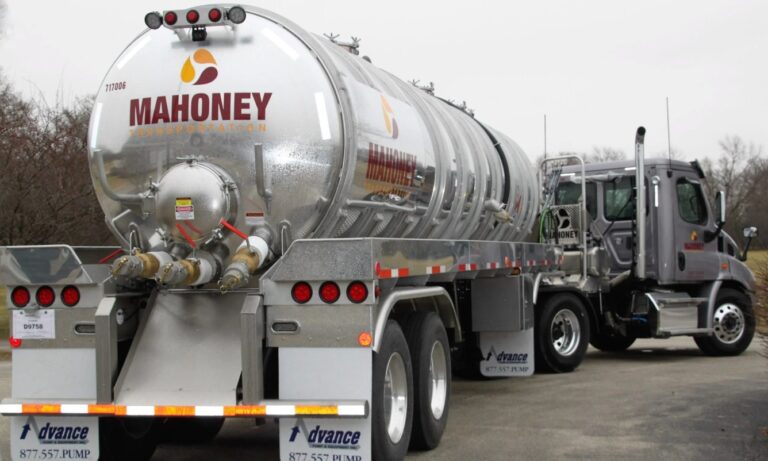How Much Does Concrete Truck Weigh? Straight Answer
Are you looking for How Much Does Concrete Truck Weigh? This question is not only crucial for those in the construction industry but also for anyone interested in heavy machinery. Knowing the weight of a concrete truck is essential for various reasons, including safety, logistics, and cost-efficiency.
Key Takeaways
- Concrete trucks can weigh between 25,000 to 33,000 pounds when empty.
- The weight varies depending on the type and model of the truck.
- Additional factors like the weight of the concrete and accessories can add to the overall weight.
- Legal weight limits are essential to consider for road safety and to avoid fines.
How Much Does Concrete Truck Weigh?
The weight of a concrete truck can vary significantly depending on its type and model. However, a standard concrete truck typically weighs between 25,000 to 33,000 pounds when empty. This weight can significantly increase when the truck is loaded with concrete.
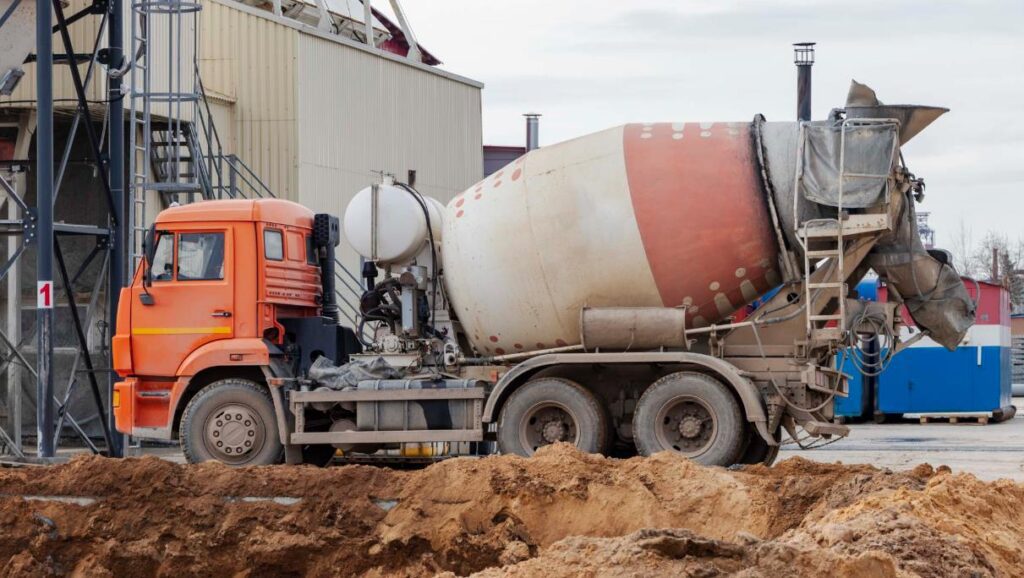
Types of Concrete Trucks
Concrete trucks come in various types, each designed to serve specific needs in the construction industry. Understanding the different types can help you choose the right one for your project.

Standard Mixer Trucks
The most common type of concrete truck is the standard mixer truck, which has a large drum that mixes and transports ready-mix concrete. These trucks are often used for large construction projects where a substantial amount of concrete is needed.
Key Features
- Drum Capacity: 6 to 14 cubic yards
- Weight limit: 25,000 to 33,000 pounds when empty
Volumetric Concrete Trucks
Volumetric concrete trucks, also known as mobile mixers, allow for on-site mixing of concrete. These trucks carry the raw materials separately and mix them as needed, providing more flexibility in concrete production.
Key Features
- Multiple Compartments for Raw Materials
- Customizable Concrete Mixes
Front Discharge Trucks
Front discharge trucks are designed for quick and efficient unloading of concrete. The driver controls the drum and chute from the cab, allowing for more precise placement of the concrete.
Key Features
- Front-mounted Chute
- Better Visibility for the Driver
Rear Discharge Trucks
Rear discharge trucks are the traditional type of concrete truck where the concrete is discharged from the back of the vehicle. These trucks usually require an additional worker to control the chute.
Key Features
- Rear-mounted Chute
- Requires Additional Labor for Chute Operation
Sideload Mixer Trucks
Sideload mixer trucks are less common but are used for specific applications. They feature a drum that can tilt sideways, allowing for more versatile unloading options.
Key Features
- Sideways Tilting Drum
- Versatile Unloading Capabilities
Factors Affecting the Weight
The weight of a concrete truck is influenced by a variety of factors. Understanding these factors can help in better planning and operation of these heavy vehicles.
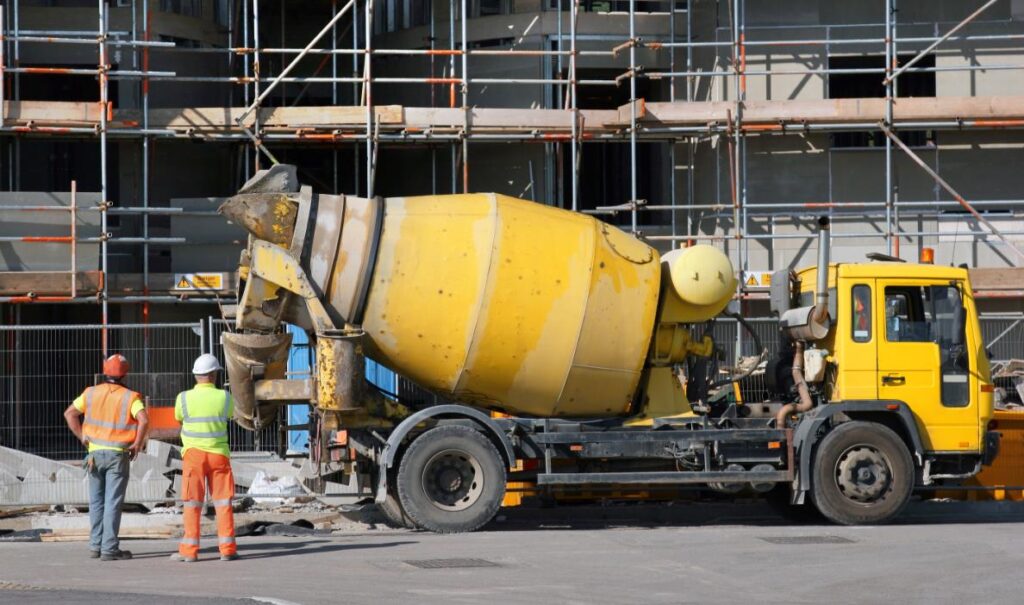
Type of Concrete
Different types of concrete have varying densities, which can significantly affect the overall weight of the truck when loaded. For example, lightweight concrete weighs around 115 pounds per cubic foot, while high-density concrete can weigh up to 150 pounds per cubic foot.
Key Points
- Lightweight Concrete: Approximately 115 pounds per cubic foot
- High-density Concrete: Up to 150 pounds per cubic foot
Accessories and Additional Equipment
Concrete trucks often come with additional equipment like chutes, extensions, and even advanced mixing systems. These accessories can add several hundred pounds to the truck’s overall weight.
Key Points
- Chutes: 50 to 100 pounds each
- Extensions: Varying weights depending on material and length
Load Distribution
Improper load distribution can not only affect the weight but also the balance of the truck, increasing the risk of tipping or other accidents. It’s crucial to ensure that the concrete is evenly distributed within the drum.
Water Content
The water content in the concrete mix can also affect the weight. More water makes the mix heavier, but it can also weaken the concrete. Therefore, it’s essential to find the right balance.
Key Point
- Water-to-Cement Ratio: Affects both weight and strength of concrete
Fuel Level
The amount of fuel in the truck’s tank is a minor but still relevant factor. A full tank can add several hundred pounds to the overall weight.
Key Point
- Diesel Weight: Approximately 7 pounds per gallon
All Other Factors To Consider

Legal Considerations
Weight Limits
It’s crucial to adhere to legal weight limits when operating a concrete truck to avoid hefty fines and ensure road safety.
Permits
Special permits may be required for trucks that exceed standard weight limits.
Safety Measures
Load Distribution
Proper load distribution is essential to prevent tipping and other accidents.
Vehicle Inspection
Regular vehicle inspections can help identify issues that may affect the truck’s weight and safety.
Cost Implications
Operating a heavier truck can result in higher fuel costs and increased wear and tear on the vehicle.
Maintenance and Repairs
Regular Check-ups
Regular maintenance check-ups are essential to ensure that the truck’s weight does not exceed the legal limits due to wear and tear or added accessories.
Repair Costs
The weight of the truck can also affect the cost of repairs, especially for parts that are weight-sensitive like tires and brakes.
Environmental Impact
Fuel Consumption
Heavier trucks consume more fuel, which has an environmental impact.
Emissions
Higher weight can also lead to increased emissions, affecting air quality.
Customization Options
Additional Features
Some trucks come with customization options that can add to the weight, such as advanced mixing systems or additional storage compartments.
Weight-saving Customizations
There are also weight-saving customizations like aluminum wheels that can help reduce the overall weight.
Industry Trends
Technological Advancements
New technologies are being developed to reduce the weight of concrete trucks without compromising their performance.
Market Demand
The demand for lighter, more efficient trucks is growing, influencing manufacturers to focus on weight reduction.
Practical Tips
Weight Management
Operators should be trained in weight management to ensure the truck operates within legal limits.
Load Planning
Proper planning can help distribute the weight of the concrete evenly, reducing the risk of accidents.
How Much Does A Fully Loaded Concrete Truck Weigh?
A fully loaded concrete truck can weigh as much as 66,000 pounds. This includes the weight of the truck itself, which is around 26,000 to 33,000 pounds, and the weight of the concrete.
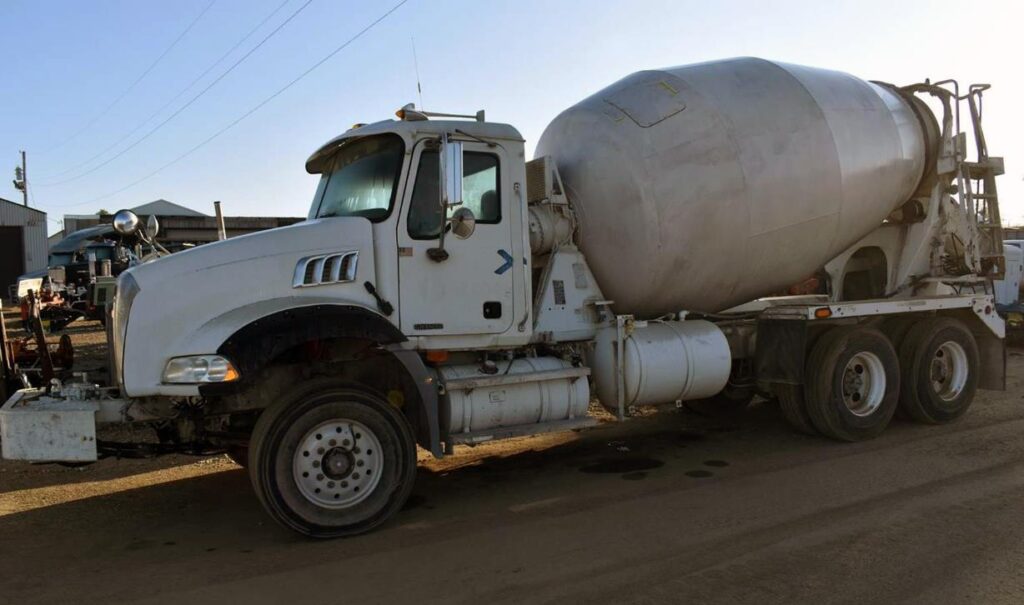
A standard concrete mixer truck can carry up to 40,000 pounds of concrete. It’s essential to note that these figures can vary depending on the type of truck and the density of the concrete being used.
How Many Pounds Does A Cement Truck Hold?
A standard cement truck can hold approximately 40,000 pounds of concrete. This is based on a typical capacity of around 10 cubic yards, with each cubic yard of concrete weighing about 4,000 pounds. However, this can vary depending on the type of concrete being used, as different mixes have different densities.
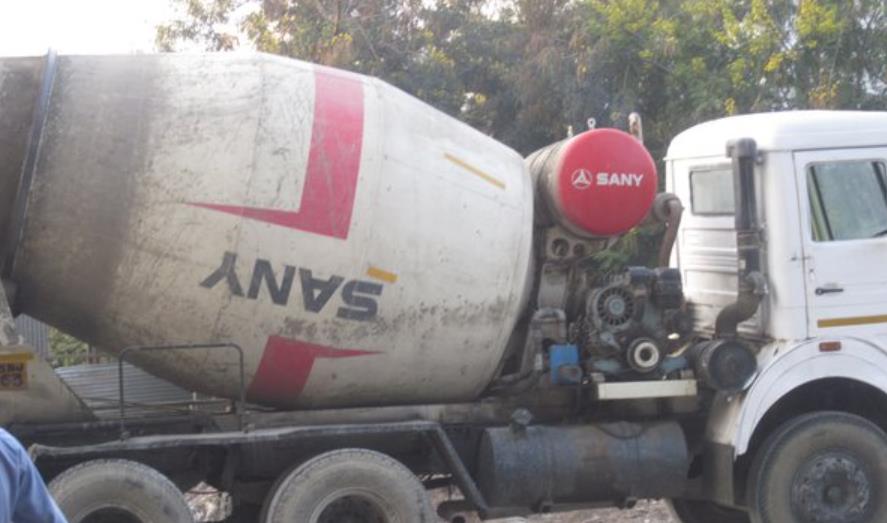
How Are Concrete Trucks Loaded?
Concrete trucks are usually loaded at a batching plant. The plant mixes the concrete according to the desired specifications and then loads it into the drum of the truck.
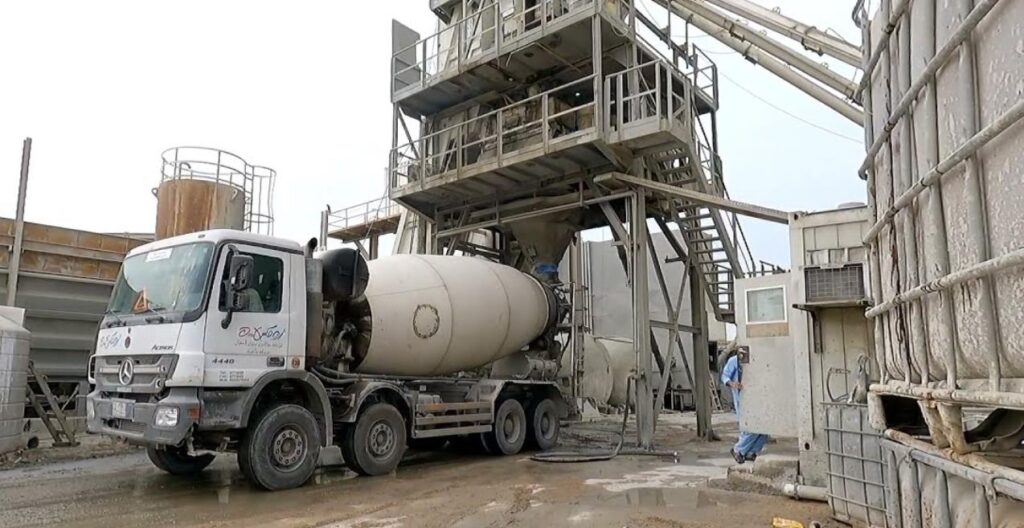
The drum is often pre-wetted to prevent the concrete from sticking. Once loaded, the drum rotates to keep the concrete from hardening before it is poured at the construction site.
Are Cement Trucks Top Heavy?
Yes, cement trucks are generally considered to be top-heavy, especially when fully loaded. This is because the bulk of the weight from the concrete is concentrated in the drum, which sits high on the truck’s frame.

This top-heavy nature increases the risk of tipping, making it crucial for operators to be trained in proper weight distribution and handling techniques.
How Much Does A Concrete Truck Chute Weigh?
The chute of a concrete truck, which is used to guide the concrete into the desired location, typically weighs between 50 to 100 pounds.
The weight can vary depending on the material used to make the chute and any additional features like extensions or swivels. It’s a relatively small part of the truck’s overall weight but is essential for the precise delivery of concrete.
Conclusion
In conclusion, understanding how much a concrete truck weighs is crucial for various aspects such as safety, legal considerations, and cost implications. It’s essential to consider multiple factors that can affect the weight, including the type of concrete and any additional accessories.
Frequently Asked Questions
How is the weight of a concrete truck measured?
The weight of a concrete truck is usually measured using industrial scales that are calibrated for heavy machinery.
What are the penalties for exceeding weight limits?
Penalties can range from fines to legal actions, depending on the jurisdiction and the extent to which the weight limit is exceeded.
How can I reduce the weight of my concrete truck?
Weight can be reduced by removing unnecessary accessories and opting for lightweight customization options.
Is there a standard weight for concrete trucks?
While there is no universal standard, most concrete trucks weigh between 25,000 to 33,000 pounds when empty.
Do different types of concrete affect the truck’s weight?
Yes, different types of concrete have varying densities, which can affect the overall weight of the truck.

Welcome to the exhilarating world of Matt Rex, a professional car racer turned renowned vehicle enthusiast. Immerse yourself in his captivating blog as he shares heart-pounding adventures, expert reviews, and valuable insights on cars, trucks, jets, and more. Fuel your passion for speed and discover the beauty of vehicles through Matt’s engaging stories and meticulous expertise. Join the ever-growing community of enthusiasts who find inspiration and expert advice in Matt Rex’s blog—a digital hub where the thrill of speed meets the pursuit of knowledge.



